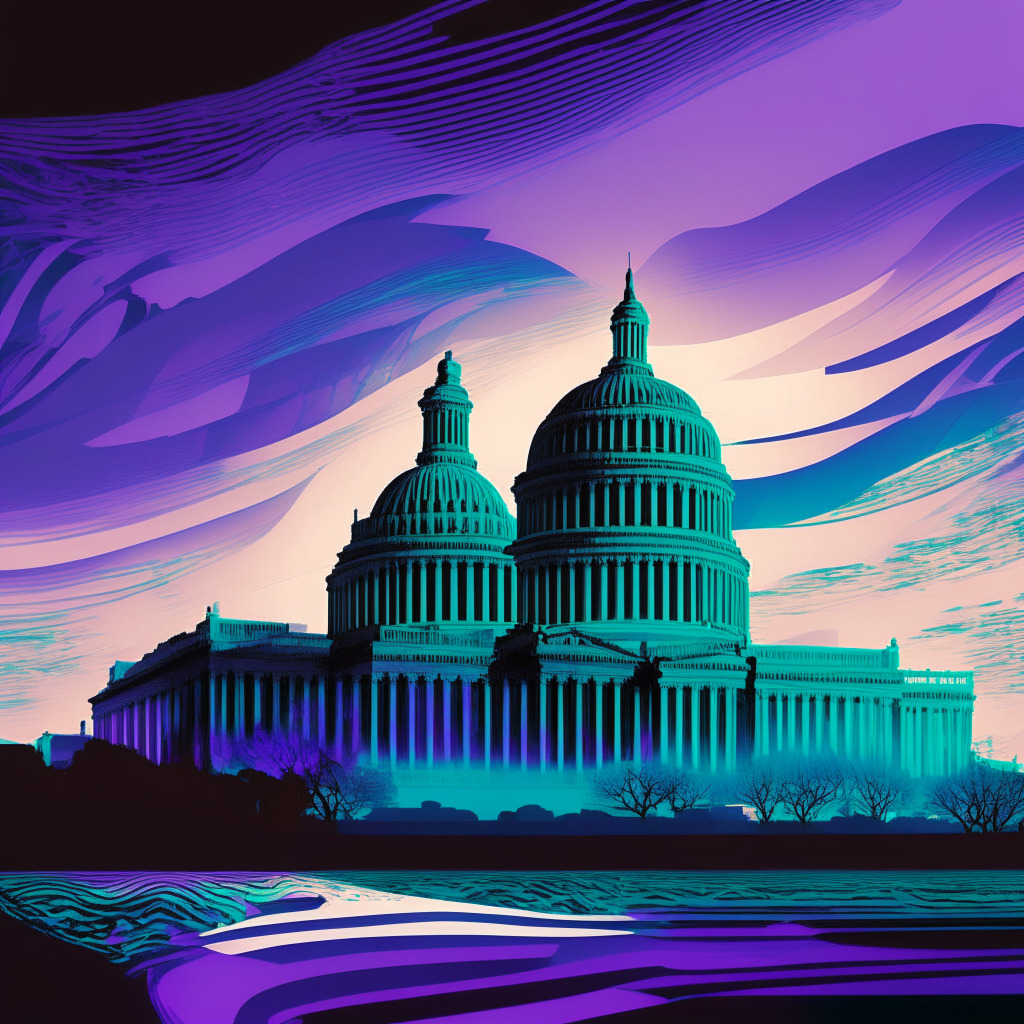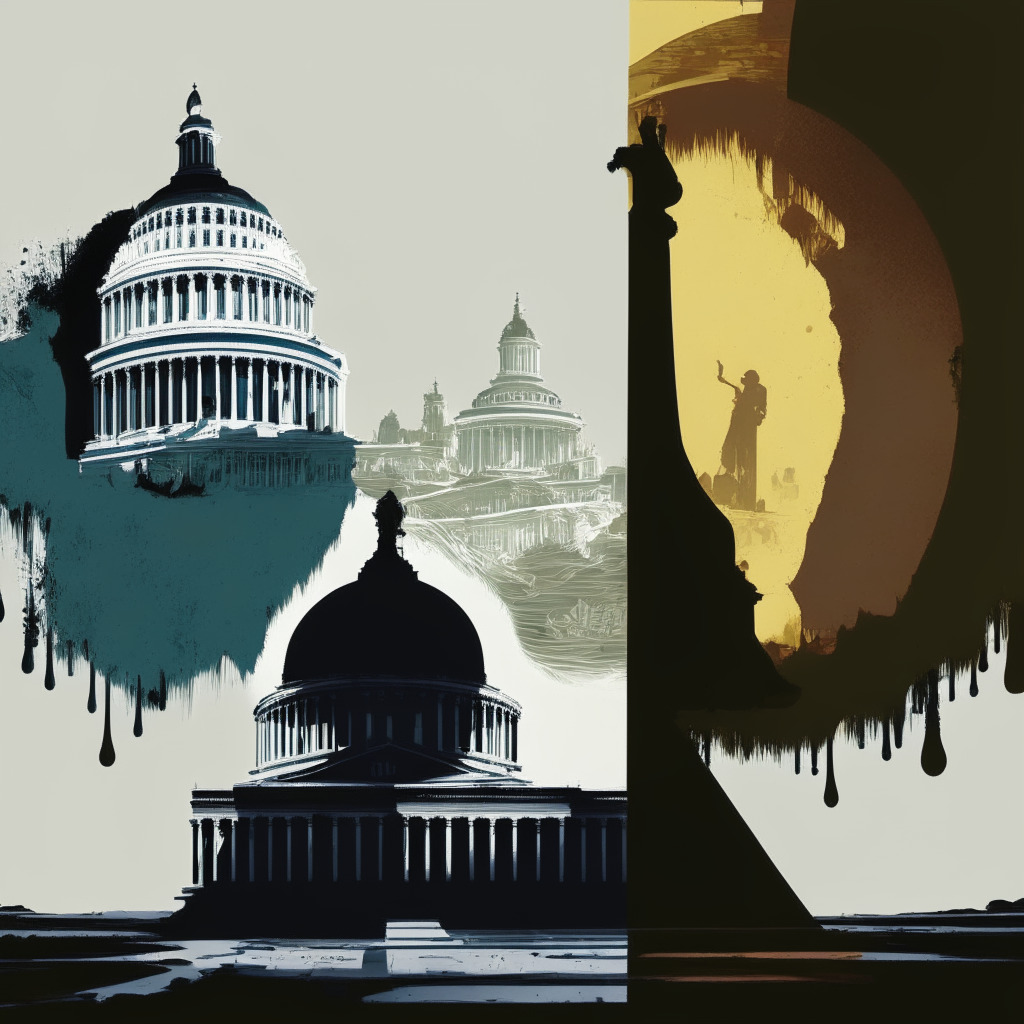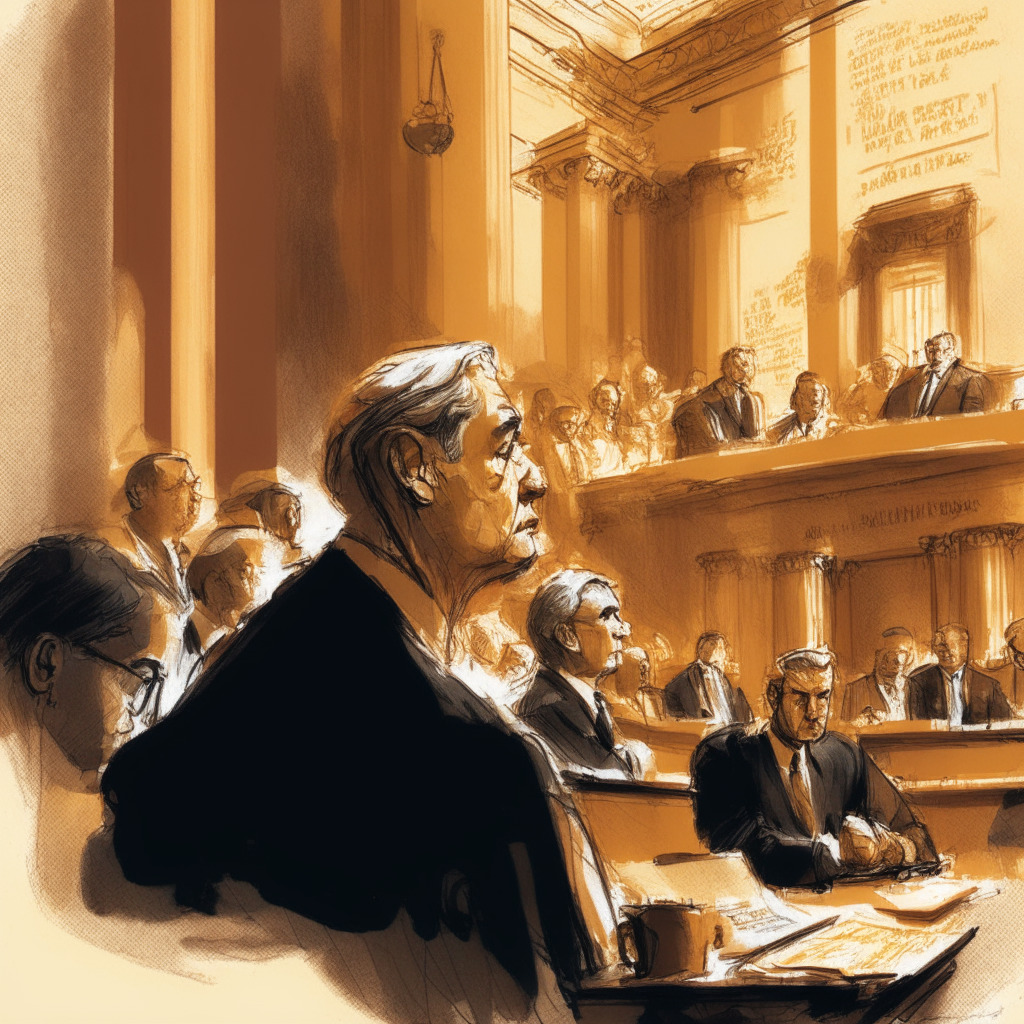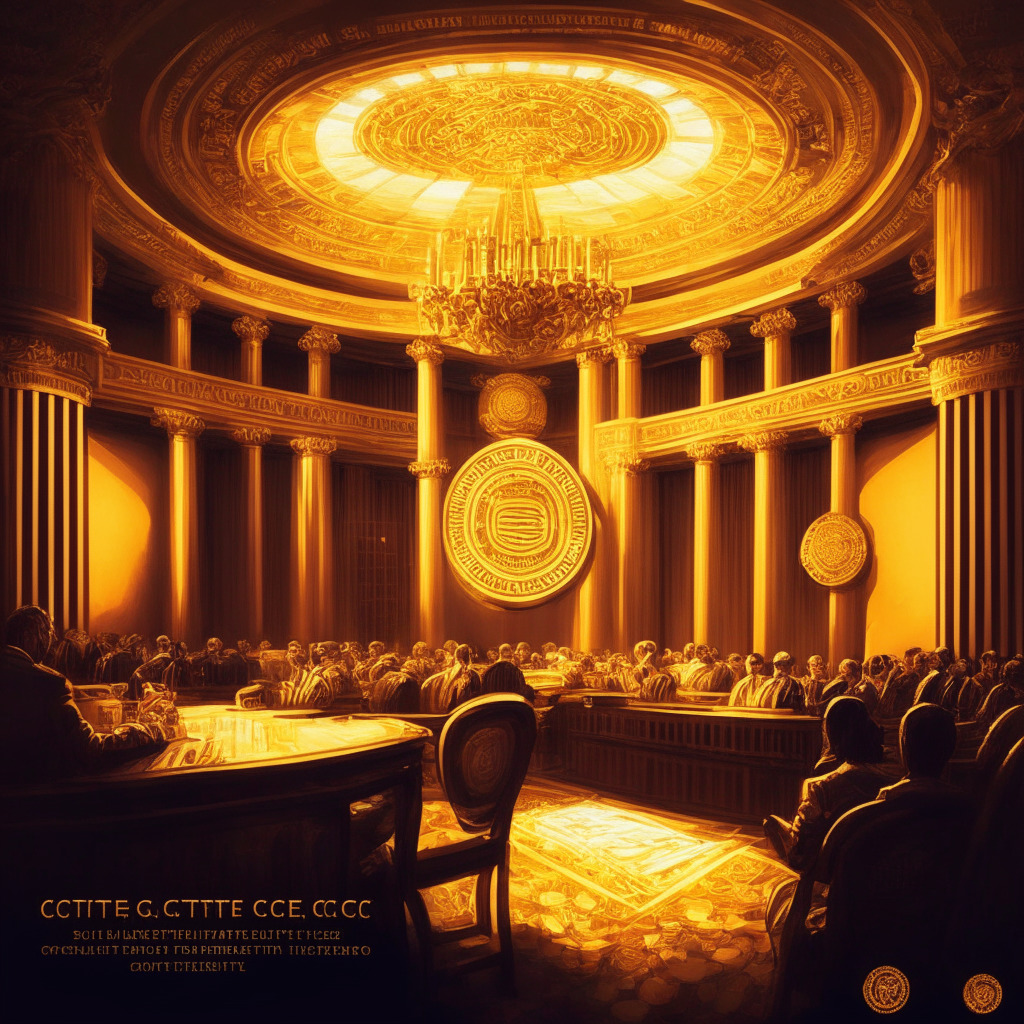“PayPal has introduced Cryptocurrencies Hub, enabling users to transact with cryptocurrencies like Bitcoin. Despite the intended convenience, there are concerns over asset control, stringent account verification, potential data breaches, and lack of regulatory compliance in PayPal’s upcoming PYUSD stablecoin launch.”
Search Results for: Maxine Waters
Navigating the Cryptoregulatory Waters: PayPal’s Launch of PYUSD Sparks Debate
“PayPal’s launch of its own stablecoin, PYUSD, brings the pressing issue of cryptocurrency regulation into focus. As cryptocurrencies integrate into mainstream financial services, there’s growing consensus on the need for a well-defined regulatory framework that can oversee these innovations while ensuring consumer protection and financial system integrity.”
Cryptocurrency Exchange Coin Launches Base Blockchain: A Game Changer or A Risk?
U.S. cryptocurrency exchange, COIN, has launched Base blockchain, a “layer 2 network” constructed on the Ethereum blockchain, potentially becoming a new revenue stream. Meanwhile, Rep. Maxine Waters expressed concerns about PayPal creating its own stablecoin without adequate federal laws. Futures activity indicates a stop to the Federal Reserve’s rate hikes due to the looming CPI release.
The Clash Over PayPal’s Stablecoin: Balancing Innovation and Regulation
“The U.S. House Financial Services Committee offers contrasting viewpoints on PayPal’s U.S. dollar-pegged stablecoin, PYUSD. While Rep. Maxine Waters expresses concern about regulatory oversight, Rep. Patrick McHenry proposes potential in its development. The struggle between fostering innovation and ensuring safety shows the complex challenges of the crypto industry.”
Navigating the Tightrope: Striking Balance in Crypto Regulations with Key Insights from Gensler and Yellen
US Representative Maxine Waters seeks opinions from SEC Chair Gary Gensler and Treasury Secretary Janet Yellen on a legislative proposal to revise crypto market structure. Amid aggressive enforcement actions and lawsuits, the crypto sector seeks a balance between regulation, protecting investors, and fostering innovation. The outcome of these discussions could significantly impact future cryptocurrency regulations and market stability.
Crypto Bill Debate: Balancing Investor Protection and Market Innovation
Rep. Maxine Waters seeks input from the US Treasury Department and the SEC on the potential impact of the latest crypto bill proposed by Republicans. She questions the bill’s effectiveness in protecting investors, changing the roles of the SEC and Treasury in the crypto market, and its possible threat to financial market stability. The outcome could significantly shape the future of crypto businesses and industry-wide regulations.
Digital Asset Market Structure: A Path for Crypto Regulation or Hindrance to SEC’s Authority?
House Financial Services Committee Chair Maxine Waters proposed the Digital Asset Market Structure bill, offering US-based digital asset exchanges a pathway for SEC registration, seeking regulatory clarity for the crypto industry. The legislation aims to approve digital securities, commodities, and stablecoins for trading while providing guidelines to distinguish between crypto-based securities and commodities.
Digital Asset Market Structure Bill: Innovation Boost or Regulatory Threat?
US lawmakers introduced the “Digital Asset Market Structure” bill, proposing a comprehensive framework for digital assets. California Rep. Maxine Waters seeks feedback on the bill’s potential impact on the regulatory landscape and investor protection, highlighting the importance of balancing innovation and investor security.
Stablecoin Regulation: Balancing Innovation and Consumer Protection in the US Market
California Rep. Maxine Waters has introduced a draft bill to regulate stablecoins in the United States, focusing on payment stablecoin issuers’ requirements, digital dollar research, and related subjects. Supporters say a clear regulatory framework would ensure oversight and consumer protection, while critics argue it could hinder innovation and limit the broader adoption of cryptocurrencies.
Balancing Acts: mBridge’s CBDC Project, Opportunities and Geopolitical Concerns
The mBridge Central Bank Digital Currency (CBDC) project, comprising members from China, Hong Kong, Thailand, UAE, and BISIH, is preparing for expansion. The project offers faster, cost-effective, and transparent cross-border transactions. Concerns rise from potential exploitation for sanctions evasion.
The Ripple Effect of PayPal’s PYUSD: Potentially Forcing a Shift in Stablecoin Regulation Debate
The launch of PYUSD, a stablecoin backed by PayPal with over 430 million users, may accelerate crypto adoption and prompt a shift in U.S. policy towards crypto regulation. Despite previous hesitations, the massive user base might force lawmakers to urgently develop a comprehensive regulated framework for stablecoins, heralding a new era of American crypto companies demanding inclusion in economic life.
Shifting Political Winds: Potential Impact on US Crypto Regulatory Landscape Post 2024 Election
Recent comments from former SEC official John Reed Stark suggest potential changes to U.S. crypto regulation influenced by party politics. Stark attributes a pro-crypto regulation shift to a possible Republican win in 2024, ending current SEC chair Gensler’s tenure, and potentially paving the way for Hester Peirce, known for her softer stance on crypto.
Navigating Blockchain: Innovations, Challenges, and the Intriguing Future of Cryptocurrency
“A telling report by Glassnode indicates that long-term crypto holders are showing tenacity, with Coinbase and Binance creating waves in the sector. Coinbase launched its Ethereum layer-2 blockchain, whereas Binance became the first fully licensed crypto exchange in El Salvador.”
Unleashing Stablecoins: Assessing PayPal’s PYUSD Launch Amid Political Divides and Regulatory Turbulence
“PayPal’s recent launch of its stablecoin, PYUSD, under the regulatory framework of the New York Department of Financial Services has stirred conversations about stablecoin adoption. Unlike Meta’s unsuccessful Libra, PayPal’s project is viewed more favorably politically, indicating an imminent regulatory framework for stablecoins in the U.S.”
Comparing Cryptos to Beanie Babies: Humor or Warning? Crypto’s Volatility and Potential Dominance
Cryptocurrencies, likened to 90s trend Beanie Babies by Coinbase, face uncertainties in their long-term role in finance. Analysts however, predict a potential $5 trillion industry built around tokenization, provided key regulatory and technical changes are implemented. Amid rising inflation, Bitcoin struggles to breach the $30,000 mark due to various contributing factors. Despite the challenges, the promise of substantial growth and innovation persists in the crypto industry.
PayPal’s PYUSD: Stepping Stone or Stumbling Block for Blockchain’s Future?
“The recent launch of PayPal’s dollar-backed stablecoin, PYUSD, has incited controversy due to the lack of Federal regulation in this domain. Some see this as undermining the Federal Reserve’s role, while others view it as stepping stone to a modern payment system. The overarching consensus is the imperative need for a clear regulatory framework in the realm of cryptocurrencies.”
Stablecoin Bill Approval: Bipartisanship Triumph or Political Posturing?
The recent passing of the stablecoin bill in the House Financial Services Committee highlights ongoing political tension in Washington. Despite initial bipartisan support, the bill stands as a glaring representation of political unity’s failure, caught in the crossfire of political maneuvers, with even well-intentioned legislation teetering on the edge of oblivion.
U.S. Crypto Regulation: Balancing Innovation and Compliance in the Blockchain Era
“The U.S Congress moved closer to regulatory clarity with two crypto-related bills: the Financial Innovation and Technology for the 21st Century Act, aimed at crypto company registrations, and the Blockchain Regulatory Certainty Act, aiming to cut down barriers for blockchain developers. However, potential conflicts between lawmakers and industry operators may lead to strenuous compliance requirements, possibly bringing the crypto industry closer to traditional finance rules and limitations.”
Stablecoin Policy Disputes: A Milestone or Impediment for Crypto Regulation?
“The Clarity for Payment Stablecoins Act (H.R. 4766) negotiations spark political debate. While some view this potential legislation as crucial for cryptocurrency regulation, others express concern about rushed decisions, lack of oversight, and regulatory dissonance. Rep. Warren Davidson’s ‘Keep Your Coins Act’ also enters the conversation, aiming to protect individual’s self-custodied crypto wallets.”
Stablecoins Legislation Deadlock: A Battle for Supervision and Inclusion in Crypto-World
“The debate in the House over stablecoins legislation reveals the significance of addressing regulatory ambiguity in the digital asset sector. Despite disagreements, legislators acknowledge the importance of stablecoins, and the outcome of this issue will inevitably influence its future regulation.”
Sweeping U.S. Regulatory Acts: Crypto Advancement or Investor Risk?
The House Financial Services Committee approves a bipartisan bill, Financial Innovation and Technology for the 21st Century Act, aiming to provide regulatory clarity for cryptocurrencies. The Act delineates registration requirements for crypto firms and seeks to define if a cryptocurrency is a security or a commodity, extending the CFTC’s control over the crypto industry.
Crypto Regulation in the US: Balancing Innovation and Consumer Protection
“The US House Financial Services Committee is examining legislation for regulatory clarity in the crypto and blockchain space, including the Financial Innovation and Technology for the 21st Century Act. Critics are concerned about potential favoritism towards cryptocurrency firms over consumers and the possibility of mishandling customer funds. Regardless of outcome, there’s widespread acknowledgment of the urgent need for comprehensive cryptocurrency regulation.”
Growing Regulatory Pressure on Crypto: Ripple’s Impact and a Call for Clear Legislative Pathways
The SEC’s ruling against Ripple and the increasing interest in crypto ETFs have propelled U.S. lawmakers to consider clear regulatory pathways for digital assets. Notable legislation under discussion includes the Financial Innovation and Technology for the 21st Century Act, Responsible Financial Innovation Act, Digital Asset Anti-Money Laundering Act, and Digital Asset Market Structure bill. These will shape the future crypto industry.
Fed Chair Powell Pushes for Central Bank-Regulated Stablecoins: Innovation vs Security Debate
Federal Reserve Chair Jerome Powell emphasizes the need for a strong federal presence in stablecoin supervision during a monetary policy hearing, asserting the central bank’s crucial role in oversight. As the crypto landscape evolves, creating a regulatory framework that balances stablecoins’ potential benefits and investor protection is vital for future success.
US Lawmakers Target Banking Failures: Impact on Crypto and Blockchain Industries
In response to major banks’ failures, US lawmakers from the House Financial Services Committee have introduced a series of bills, although not specifically mentioning crypto or blockchain. The future of regulations surrounding banks and their potential impact on the cryptocurrency and blockchain industries remain uncertain, with past lawmakers expressing optimism on stablecoin bills.
US Political Divide on Crypto Regulations: How it Affects Investors and Companies
Without bipartisan support for digital asset-focused legislation, investors and companies may turn to crypto-friendly jurisdictions, warns Moody’s. Key differences include stablecoin regulation and consumer protection, with many crypto firms already exploring options outside the US.
Urgent Need for Crypto Regulations: Debating the Pros, Cons, and Conflicts
A Congressional hearing discussed the Digital Asset Market Structure Discussion Draft, aiming to establish a regulatory framework for digital assets. The industry seeks regulatory clarity amid concerns that insufficient action could have “devastating consequences” for the U.S.’s global digital economy competitiveness.
Upcoming Digital Asset Bill: Balancing Regulation, Innovation, and Investor Protection
The US Financial Services Committee will vote on a digital asset bill to establish a regulatory framework for the crypto industry, providing clear rules and guidelines. The intended outcome is to offer clarity and take the first step towards regulating crypto in the US, addressing issues related to the SEC’s regulation-by-enforcement approach.
Digital Asset Market Structure Draft: Striking the Balance Between Regulation and Growth
US House Financial Services Committee Chair Patrick T. McHenry announced a vote on the Digital Asset Market Structure Discussion Draft to classify cryptocurrencies as securities or commodities and regulate exchanges. However, concerns arise due to potential “provisional registration” that could reward bad actors in the industry with a “get out of jail free card.”
Digital Assets Debate: Clarifying Security vs Commodity and the Impact on Crypto Regulations
The proposed draft legislation aims to clarify the distinction between a security and a commodity in the digital asset space, establishing when they should be regulated by the SEC or CFTC. This legislation promises to bring clarity and transparency, ensuring future stability and success for the financial sector.
Bipartisan Efforts for Clear Digital Asset Regulations: Can SEC and CFTC Find Common Ground?
Two Republican lawmakers from the US House Financial Services Committee and the House Agriculture Committee are working on a discussion draft to regulate digital assets, aiming to establish clarity in determining when a digital asset is considered a security. The draft legislation, “Digital Asset Market Structure Discussion Draft,” proposes a process for treating digital assets and seeks a unified path for SEC and CFTC jurisdictions.
Digital Asset Regulation: Bridging the Divide Between CFTC and SEC in Upcoming Congressional Hearing
US lawmakers will discuss “The Future of Digital Assets: Providing Clarity for Digital Asset Spot Markets” in a congressional hearing on June 6. Collaboration between regulatory committees like the CFTC and SEC is essential to address concerns in the digital assets space, focusing on effective guidelines and fostering innovation while safeguarding consumer interests.































